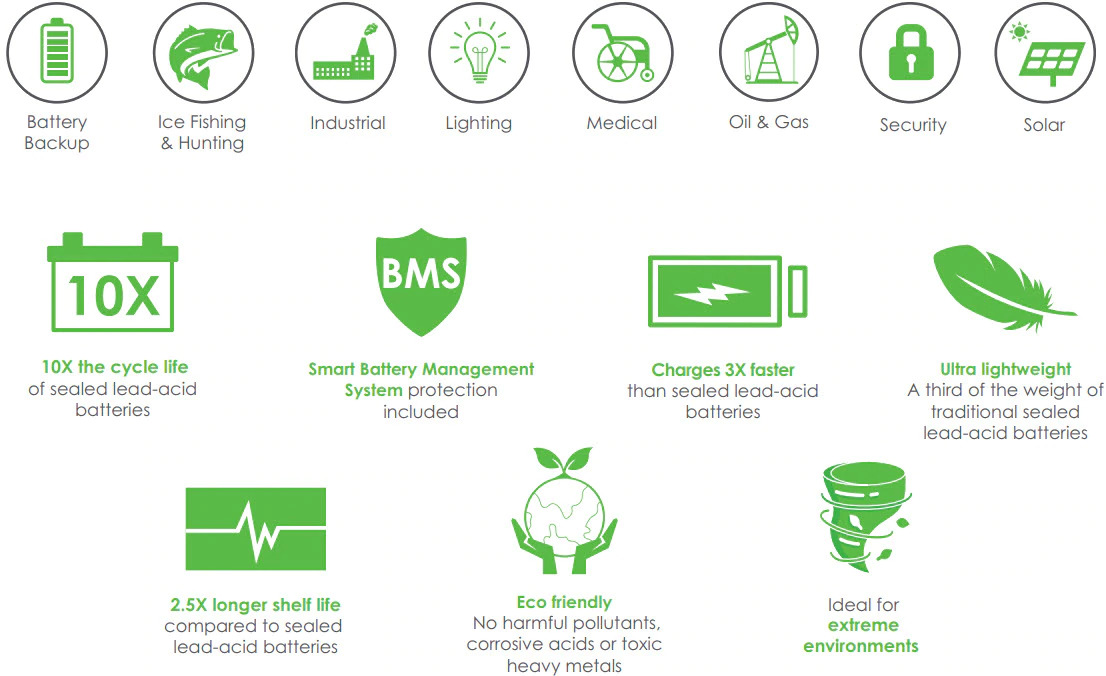Released on Jun. 01, 2022
Lithium-ion (Li-ion) batteries consist of high power and high energy density, offering higher capacity and superior operating performance. Since Li-ion batteries are rechargeable, they are used as a power source in many applications. Therefore, temperature plays a critical role as it greatly affects the performance of Li-ion batteries. In addition, it controls the function of the lithium-ion battery.
In addition, different temperatures can have different harmful effects. Understanding the effects of different temperatures inside and outside the Li-ion battery is very important for proper battery management. Therefore, in this article, the effect of low temperature on Li-ion batteries and how it changes the performance of Li-ion batteries will be discussed.
When devices containing Li-ion batteries are used at very low temperatures, there is a significant shortfall in their battery life. This characteristic and effect occurs in all lithium-ion batteries when used at low temperatures. However, this effect is not permanent. Once the battery temperature returns to the normal range, the performance of lithium-ion batteries will also return to normal. However, it is recommended not to charge lithium-ion batteries at low temperatures to maintain their safety.
It should be noted that the electrolyte in most Li-ion batteries freezes at approximately ?40 °C (?40 °F). Lithium-ion batteries function over a discharge temperature range of -20°C to about 60°C (-4°F to about 140°F). Performance is temperature-based, i.e., the multiplier capability is reduced at or below -20°C; this is due to the increased impedance of the electrolyte. In addition, discharging Li-ion batteries at lower temperatures does not negatively impact the battery. Lithium-ion batteries can be used at temperatures of 30°C (-22°F) and produce satisfactory results. However, due to these temperatures, larger packs will be required to compensate for the reduced capacity.
In addition, Li-ion batteries can be charged quickly at temperatures from 5°C to about 45°C (41°F to about 113°F). At temperatures below 5°C, the charging current must be reduced and charging is not allowed at very low and freezing temperatures due to the reduced anode diffusion rate. In addition, the internal resistance of the cell causes a slight temperature rise during charging to compensate for a little cold. Each cell's internal resistance rises when cold, which significantly extends charging time.
However, many users of these batteries are not aware that consumer-grade lithium-ion batteries cannot be charged once the temperature falls below 0°C (32°F). Although it may appear to be charging the battery properly, during the charging process below 0°C, metallic lithium plating may occur on its anode. This will be permanent and cannot be removed by further cycling. This is why batteries with lithium plating are more likely to fail when exposed to various stress conditions.
In addition, progress is being made in charging lithium ions below freezing. In fact, many Li-ion batteries can be charged, but at extremely low currents. Some research papers suggest that the allowable charge rate at -30°C (-22°F) is about 0.02 C. However, at such low currents, charge times can extend to more than fifty hours, which is clearly impractical. However, some Li-ions are capable of charging at lower rates at -10°C (14°F).
Many experts believe that freezing lithium-ion batteries can improve their chances of extending battery life. This technology is said to make lithium batteries safer to use while also extending their life expectancy. In addition, the researchers mentioned that this technology could enhance the flexibility of the batteries; therefore, they are more suitable for use in future bendable gadgets and devices.
This technique for freezing lithium-ion batteries, created by the researchers, is known as ice templates or freeze casting. This is a process that allows experts to manipulate or control the chemical structure of the electrolyte in lithium-based batteries. This will allow them to create batteries for more suitable portable devices. In addition, electric vehicles and grid-level energy storage will be enhanced.

Currently, lithium batteries consist of a liquid electrolyte, which is known to have a high risk of flammability and causing the battery to explode. Therefore, this is the reason why researchers are conducting a large number of studies that will help them find solutions to this problem and avoid such events by proposing new alternatives. Therefore, the researchers worked hard to improve the situation when they came across a lot of information. As a result, they discovered a possibility to build a battery with a solid electrolyte instead of a liquid electrolyte. This method would make the battery safer; hence the creation of cryocasting.
In addition, lithium-based batteries are negatively affected by exposure to high temperatures, high temperatures or high charging voltage rates. Simply put, when cells are exposed to elevated temperatures or full charges, they tend to lose their ability to store charge. As a result, the high amount of stress on these cells tends to severely impact and reduce the life of lithium-based batteries. On the other hand, storing the battery in a closed space at a lower temperature after it has been charged and kept away from heat sources can have many positive effects. As a result of freezing the battery, the stress will be removed; therefore, this will be very beneficial.
Navigation
Mob: +86 186 6629 0033
Tel: +86 0769 85544410
Fax: +86 0769 85544410
E-mail: info05@zwaynenergy.com
WhatsApp: +86 137 1409 6556
Wechat: +86 186 6629 0033
Office: 16th Floor, Yunhua building, shajing Town, Shenzhen, PRC
Add: Room 101, Building 1, No. 18 Hu Nan Road, Changping Town, Dongguan City, Guangdong Province
Follow Us